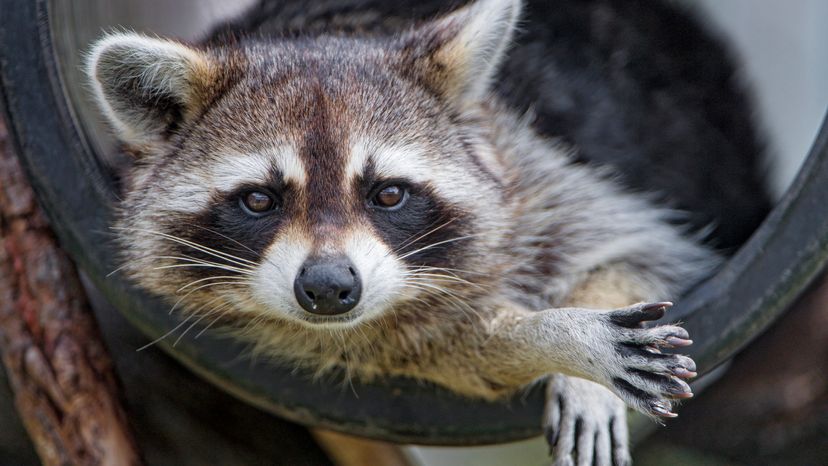There are many household items that raccoons hate that can keep them out of your yard and home. Before you use them, though, close any openings to your house where raccoons might be getting in. These include vents, windows, loose siding and soffits.
You may also want to construct a "floppy-top" wire mesh fence or a wire mesh cover to keep raccoons out of a vegetable garden or ornamental pond [source: Fischer]. Once your outdoor space is ready, try one of these raccoon deterrents.
- Ammonia: Put a bowl of ammonia in your fireplace to keep raccoons out of the chimney. (Install a cap on the chimney once the raccoons are gone.) Tie rags into balls and soak them in ammonia. Put these wherever the raccoons are living. Resoak the balls as necessary.
- Spices: Sprinkle potent spices around your yard. Cinnamon, ground black pepper and ground dried hot pepper are some possibilities. These irritate raccoons' sense of smell, encouraging them to move to a more hospitable location [source: Fischer].
- Peppers: Make a raccoon-repellent spray by boiling two quarts (about two liters) of water with a tablespoon of cayenne pepper, several hot peppers and an onion for 20 minutes. You can also add hot sauce. Strain the liquid and spray it around your house, yard, vegetable gardens, plants and trash cans. You'll need to reapply this spray every two to three days and after it rains [source: Fischer].
- Sprinklers and lights: Repel raccoons with motion-activated sprinklers or lights [source: OWREN].
- Sound: Try repelling raccoons with a loud radio, as long as your home is not in earshot of other neighbors.
Are Raccoons Afraid of Coyotes?
Some suggest using coyote urine to keep raccoons away and protect your home. The reasoning is that using a spray bottle to cover areas with the strong scent of the urine would keep these nighttime critters away because raccoons would try to avoid their predators.
However, a recent study found that raccoons did not seem troubled by the presence of coyotes and other animals like deer. On the contrary, researchers at North Carolina State University found raccoons and coyote foraging side by side.
"Raccoons do not seem to be vigilant toward coyotes when caught on camera, and their activity patterns overlap, all of which indicates that coyotes are not depredating racoons, meaning they're not eating said," said Chris Moorman, a professor at the university's Department of Forestry and Environmental Resources.
